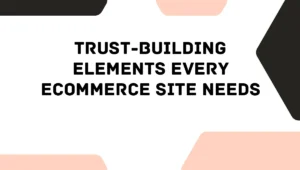in today’s digital landscape, a strong online presence is not just a luxury for local businesses; it’s a necessity. As customers increasingly turn to the internet to discover products and services in their communities, having an effective website can make all the difference. Enter Cham Agency: where creativity meets strategy to elevate your local buisness in the digital realm. This step-by-step guide to website design is crafted with local entrepreneurs in mind, offering insights and practical tips that empower you to build an engaging, user-friendly platform that resonates with your target audience. Whether you’re starting from scratch or revamping an existing site, our guide will navigate you through the essential elements of successful website design, ensuring your online identity shines bright in your local market. Embrace the possibility to connect with your community like never before—let’s get started on crafting a digital home for your business that reflects your unique vision.
Understanding Your Target Audience and Market Landscape
To create an effective website for local businesses,it is essential to first comprehend your target audience and the overall market landscape.Your target audience is not just a vague collection of individuals; they have specific characteristics and preferences.Start by defining the demographics of your potential customers, such as age, gender, income level, and education. Consider their interests, behaviors, and pain points. Furthermore, examine local market trends and consumer needs that your business can fulfill directly. This baseline knowledge allows for informed decisions in your design process, ensuring your website speaks to your audience’s unique motivations.
Understanding the local market landscape involves analyzing competitors and market demands. Look into local businesses similar to yours and identify what works for them, from website design to engagement strategies. Regularly assess their strengths and weaknesses as well as consumer feedback on their offerings. Consider creating a comparative analysis table to visualize this facts better:
| Business Name | Website Features | Strengths | Weaknesses |
|---|---|---|---|
| Local Florist | Easy Navigation, Contact Form | Strong Local Presence | Lack of Online Orders |
| Baker’s Delight | online ordering, Gallery | Aesthetic Appeal | Poor Mobile Experience |
| City Gym | Membership Portal, Testimonials | Community Engagement | Outdated Design |
This comprehensive analysis equips you with the necessary insights to tailor your website effectively, ensuring it not only competes but also resonates with your audience.By employing these foundational strategies, Cham Agency can definitely help you elevate your online presence to meet the evolving needs of your local market.
Crafting an Engaging User Experience for Local Customers
To attract and retain local customers,your website must not only look appealing but also deliver a seamless experience tailored to the community it serves.Start by integrating location-specific elements such as local imagery and culture into your design.This approach helps visitors feel a sense of connection with your brand.Ensure that relevant information, such as address, hours of operation, and contact details, are easily accessible. Utilize intuitive navigation to guide users effortlessly through your site, allowing them to find essential resources quickly. Also, consider implementing responsive design that provides optimal viewing on all devices, which is crucial as many local users browse on their mobile phones.
Engaging your audience further requires an understanding of local preferences and needs.Incorporate user-generated content like testimonials and reviews from customers in your area, as these can substantially enhance trust and credibility. You might also introduce an interactive element such as a local events calendar or promotions specific to nearby customers. To ensure your site resonates with your audience, consider conducting surveys or polls to gather insights on what local customers value most. By tailoring your content and design to reflect the identity and interests of your local community,you can create an inviting and engaging user experience that keeps customers coming back.
Optimizing for Search Engines and Local Discoverability
To enhance search engine visibility, it’s essential to integrate relevant keywords throughout your website’s content. Begin by identifying the specific phrases that your target audience is likely to use when searching for your services. Place these keywords strategically in key areas such as headings, meta descriptions, and within the body of your text. Remember to maintain a natural flow in your writng; keyword stuffing can lead to penalties from search engines. Additionally, focus on optimizing your website’s loading speed and mobile responsiveness, as these factors significantly impact your search ranking.
Local discoverability hinges on your presence in local search results. Start by creating a Google My Business profile that accurately reflects your business’s information, including your address, hours, and services. Encourage satisfied customers to leave positive reviews, as these can boost your local ranking and reputation.Moreover, incorporate local keywords in your content, and ensure your contact information is clearly displayed on every page. Participating in local online directories and community events can further enhance your local visibility.
Leveraging Mobile responsiveness and speed for Enhanced Accessibility
In an increasingly mobile-first world, ensuring your website is both mobile responsive and fast-loading is crucial to reach and engage your local audience effectively. A well-optimized mobile experience not only enhances user satisfaction but also contributes to better search engine rankings, ultimately driving more traffic to your business. Consider the following elements to boost both speed and responsiveness:
- Adaptive Layouts: Use flexible grid layouts that adapt seamlessly to different screen sizes.
- Optimized Images: Compress images without compromising quality to reduce load times.
- Minimize Redirects: Limit unneeded redirects to enhance page loading speed.
- Efficient Coding: Write clean, minimal code to ensure faster rendering times across all devices.
Speed is an essential factor in accessibility. Users expect websites to load quickly, and delays can lead to increased bounce rates and missed opportunities for engagement. Analyzing performance metrics can help identify bottlenecks, allowing for focused improvements. Here are some key performance indicators to monitor:
| Metric | Importance |
|---|---|
| Load Time | Directly affects user retention and satisfaction. |
| First Contentful Paint (FCP) | Indicates how quickly users see content on their screens. |
| Time to Interactive (TTI) | Measures when a page becomes fully interactive. |
Wrapping Up
As we draw the curtain on our exploration of website design for local businesses,it’s evident that a well-crafted online presence is more than just a digital storefront; it’s a vital bridge connecting you with your community. By following the steps outlined in this guide, you’re not just building a website, but cultivating an inviting space that reflects your brand’s essence and values.
Remember, the digital landscape is ever-changing, and so are the needs of your local audience. Embrace feedback, stay adaptable, and continue to innovate your website to foster deeper connections with your customers.As you embark on this journey, keep in mind that every pixel counts in telling your story and showcasing the unique offerings of your business.
In a world where every detail matters, take the knowledge you’ve gained and turn your website into a vibrant hub that not only captures attention but also retains loyalty.Here’s to your success in creating an online experience that resonates with your local community and inspires them to engage with you time and time again.Happy designing!





